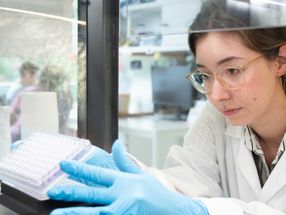'Plants for the Future' programme sets a European agenda for the goals and benefits of plant genomics and biotechnology
Advertisement
A wide group of stakeholders jointly published the strategic research agenda 'Plants for the future' on how Europe can improve the safe exploitation of the genetic diversity in plants using plant genomics and biotechnology. Input has been collected from research institutions, industry, farmers, politics, financial world, regulatory authorities, as well as consumer and environmental organizations.
"'Plants for the Future' is an impressive demonstration of how working together can build competitiveness. This joint effort of all those involved in the agricultural production chain to identify and take into account scientific and technological potential, market drivers and consumer demand can only be positive for the future of the agricultural sector," says Janez Potocnik, EU Commissioner for Science and Research. "Plant genomics and biotechnology, as outlined in the strategic research agenda published today, will play a major role in ensuring sustainability of our economy through renewable biological resources."
The agenda defines the strategic research priorities for the two coming decades. The priorities are to produce healthy and safe food and feed, and to increase competitiveness of the agricultural value chain while contributing to sustainability.
"If we talk about the European agricultural value chain we talk about more than 600 billion Euros of turn-over each year, 8% of the European workforce, and 17 million farms. Research and application of plant genomics and biotechnology will foster this leading industrial sector," says Hans Kast, Chairman of EuropaBio - the European association for bioindustries. "The consensus of all stakeholders on the research agenda is a great achievement and clearly shows that Europe wants to earn the benefits of plant biotechnology," he adds.
As the joint research platform 'Plants for the future' will focus on EU aspects in agriculture, raw materials, feed and food, such as oil plants containing more long-chain polyunsaturated fatty acids with health benefits for humans, or crops with higher levels of vitamins. The platform will also be extended to animal feed crops that are important to Europe, e.g. wheat, grain, legumes, and rapeseed. A special focus on biodiversity will help to expand the variety of crops cultivated in the EU. In addition, crops will be further developed in terms of reducing the need of agricultural inputs and better protection against pests and diseases.
Responding to climate change, and the growing awareness towards environmental responsibility, plant science will be a key technology in delivering the bio-based economy where energy, raw materials and renewables are increasingly produced by the agricultural sector.























































